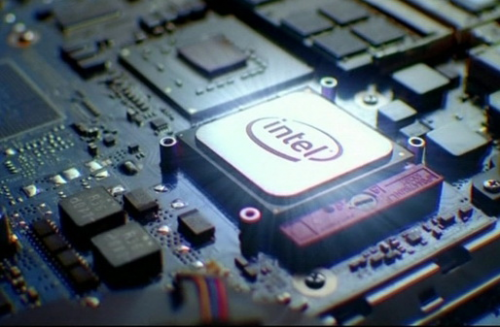[이코노믹리뷰=최진홍 기자] There is a growing possibility that Samsung Electronics will start expanding its foundry plant in Austin, USA. Samsung Electronics is still in the position that “nothing has been specifically confirmed,” but the industry puts weight on the side that Samsung Electronics is exploring various possibilities through expansion of local foundry factories.
At the Austin plant in the US, Samsung Electronics is producing 10-nano system semiconductors and memory semiconductors.
–
TSMC checklist
According to Bloomberg and foreign press on the 22nd, Samsung Electronics is trying to expand the Austin plant in the US by investing 10 billion dollars. The goal is to go through a pilot operation in 2022 and manufacture a 3nm or less process semiconductor in 2023.
The direct background that Samsung Electronics introduces to the expansion of its Austin plant is to check TSMC, which is the number one in the global foundry market. TSMC announced that it will build a 5-nano foundry process at its Arizona plant by 2024 by investing a total of 12 billion dollars last year, and Samsung Electronics is also exploring various possibilities through enormous investments.
TSMC has already decided to expand its factories in the US when the nervous war between the US and China was on the rise last year, stopped trading with Huawei in China, and reinforced its contact with local fablesses. It is determined to take the lead in the global foundry market by giving up alliance with Huawei, which had not given up until the end even during the US-China trade war.
From that extension, the company is moving to take the lead in the global foundry market by rapidly developing a roadmap from 5 nanometers to 3-nano process, and cooperation with US fabless companies. In the midst of this, analysts say that Samsung Electronics decided to expand its plant in Austin in the US through a 3-nano card, and that it is trying to set fire to TSMC.
 –
––
Cooperation with Intel
Eyes are also focused on the link between Samsung Electronics and Intel.
Intel once suggested that it would virtually give up on direct production of processes below 10 nanometers and 7 nanometers. They are determined to give up some in-house production and choose and focus on a situation where they are pushed by the wave of waves of AMD, which is acquiring Xilinx, and Nvidia, which has ARM. In the same vein, last year, SK Hynix decided to sell its entire NAND flash division.
With Apple’s declaration of de-Intel through MI production and Microsoft’s giving up with Intel, it has become a fixed fact that Intel will give up some of its own production infrastructure to survive. On the 20th (local time), the US semiconductor media company SemiAccurate reported that “Intel recently signed a contract for consignment production with Samsung Electronics,” and Intel’s abandonment of self-production seemed to be a trend.
The reversal began with the remarks of CEO Pat Gelsinger, who was appointed as the command tower of the new Intel. On the 21st (local time), he did not specify the foundry partner at the site of the 4Q results of last year, and said that he would manufacture the 7-nano process internally. In fact, Pat Gelsinger’s new CEO said, “Intel has solved some of the problems with 7-nano process production,” and said, “In 2023, 7-nano process manufacturing will be carried out in-house.”
With the announcement that Intel will not give up direct production of 7-nano process, the benefits to TSMC and Samsung Electronics are limited. However, it is clear that Intel is still considering consignment production for some products, and above all, it is said that the industry’s response to the claim that Intel has solved the 7-nano process problem in a short period of time is “not realistic”.
Meritz Securities researcher Kim Sun-woo said, “As TSMC’s Arizona fab will be ready in 2023, the US mainland partners are needed during the hiatus this year and next year. After the acquisition of competitive price bargaining power from multi-consignment production and the use of EUV, TSMC and Samsung “It is judged to be a joint use decision considering the uncertainty of the yield and productivity gap of electrons.”
 –
––
For that reason, there is a high possibility that TSMC will win an order for Intel’s GPU, while Samsung Electronics will win an order for South Bridge rather than CPU. This is why Samsung Electronics’ expansion of the Austin plant in the US sounds unusual with reports that Samsung Electronics is planning to produce Intel chips at a scale of 15,000 300mm wafers per month from the second half of this year at the Austin Foundry Plant.
Samsung Electronics set a goal to keep TSMC in check and actively engage in fine fair competition through the expansion of its Austin plant in the US, but some people invested in securing additional quantities of Intel in the future while the order transfer for Intel foundry is entering a prolonged phase. There is an analysis that it is being carried out.
In the case of the foundry process, considering that the contract is signed first and the process is installed, it is highly likely that Samsung Electronics and Intel have signed a partner agreement in some way. This is why the attention is focused on the announcement about Intel’s foundry partner, which will be released soon.
– .


